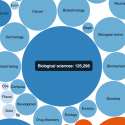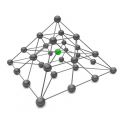Archives
Category: Knowledge Modelling

Information Management Survey 2018: Knowledge Engineering at the Core of Cognitive Applications
The Semantic Web Company, Mekon and Enterprise Knowledge conducted an Information Management Survey for practitioners that provides new insights into the current status of this highly diverse technology field. 187

PoolParty GraphSearch brings knowledge search to a new level
There is a strong connection between information storage and retrieval, namely how information storage is implemented under the hood directly impacts the retrieval or search. The knowledge management techniques we

A Standard to build Knowledge Graphs: 12 Facts about SKOS
These days, many organisations have begun to develop their own knowledge graphs. One reason might be to build a solid basis for various machine learning and cognitive computing efforts. For

PoolParty Academy: The Leading Online Portal to Learn about Semantics
In September 2016, the Semantic Web Company launched its new service the PoolParty Academy. The online learning platform covers semantic technologies in different levels of complexity. So far over 300 people worldwide participated in the program and got certified.

PoolParty Academy Opens in September 2016
PoolParty Academy offers three E-Learning tracks that enable customers, partners and individual professionals to learn Semantic Web technologies and PoolParty Semantic Suite in particular.

Insights into Nature’s Data Publishing Portal
In recent years, Nature has adopted linked data technologies on a broader scale. Andreas Blumauer had the opportunity to talk with Michele Pasin and Tony Hammond who are the architects of Nature’s data publishing portal.

How PoolParty and ISO 25964 fit together
We are frequently asked whether PoolParty is compatible with ISO 25964. Our basic answer always is “Yes, of course” as the data model defined in the standard can be mapped to SKOS + SKOS-XL.

Ready to Connect to the Semantic Web – Now What?
The goal of publishing open data should be to make it available for access or download and to make it interoperable. One of the big benefits is to make the data available for software applications which in turn means the datasets have to be machine-readable.
Ensure data consistency in PoolParty
Semantic Web Company and its PoolParty team are participating in the H2020 funded project ALIGNED. This project evaluates software engineering and data engineering processes in the context of how these both
How the PoolParty Semantic Suite is learning to speak 40+ languages
Business is becoming more and more globalised, and enterprises and organisations are acting in several different regions and thus facing more challenges of different cultural aspects as well as respective
